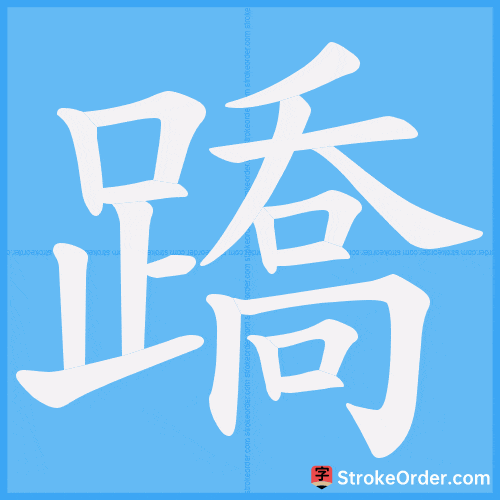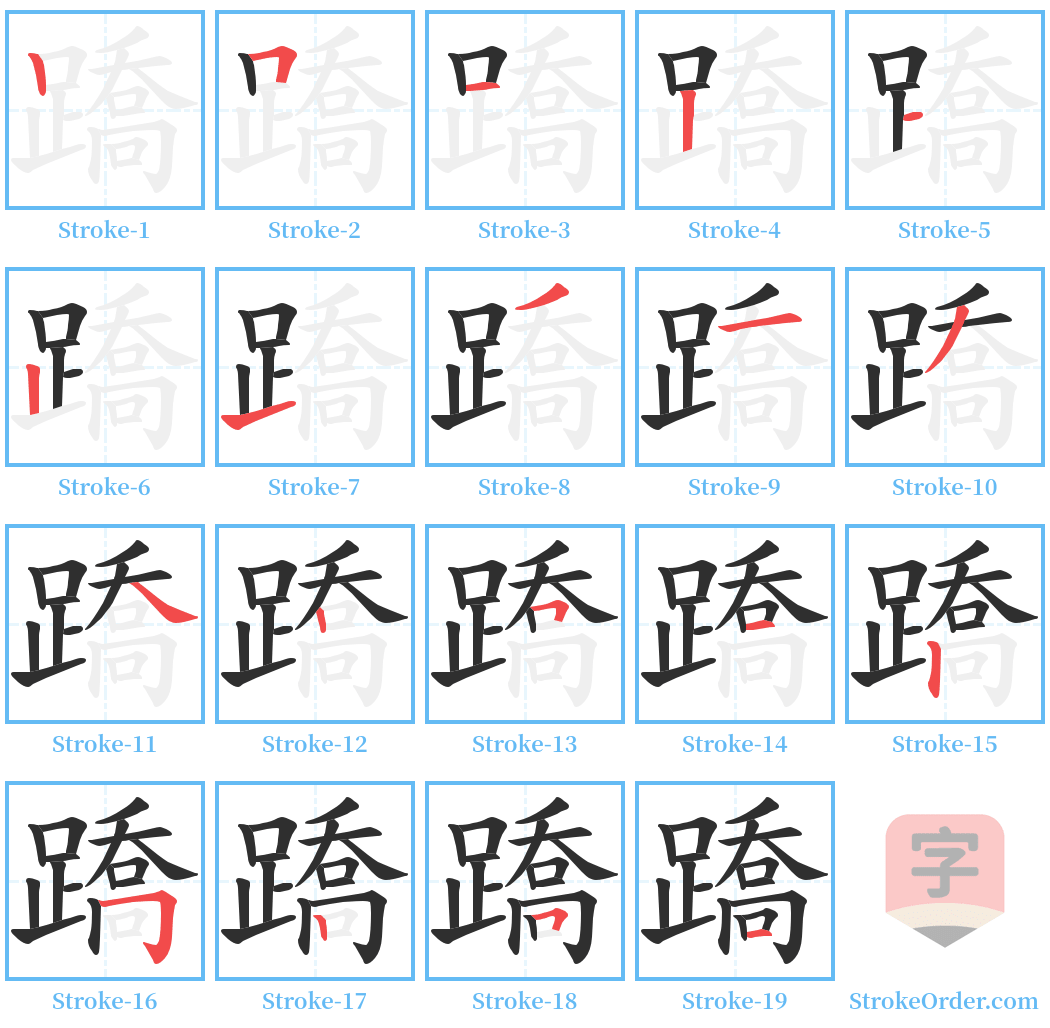蹻 Stroke Order
Animated Stroke Order of 蹻

Stroke Order Diagrams for 蹻

Information of 蹻
Pinyin
qiāo、 jiăo、 juē、 jú、 xuè
Radical
足
Strokes
19 strokes
Usage
★★
Definition
蹻 [jué]
1. Same as "蹺". Raise the foot high.
同“ 蹺 ”。把腳舉高。
2. Walking appearance.
走貌。
3. A wooden stick tied to the foot during the performance of stilt walking, which raises a person.
表演高蹺時綁在腳上把人墊高的木棒。
4. Swiftly lifting hands and feet.
捷舉手足。
5. Noun: Clogs, shoes. In ancient times, often referring to straw sandals.
屐、鞋。古代多指草鞋。
Example: "布衣草蹻而牧羊。" — Han Shu (Book of Han)
6. Also see qiāo.
另见 qiāo。
7. Verb: To lift the foot. Same as "跷".
动词 抬起脚来。通「跷」。
8. "说文解字" (Shuo Wen Jie Zi) states: "Raise the foot slightly high."
《说文解字.足部》:“举足小高也。”
9. [蹻蹻] — ① Proud.
〔蹻蹻〕①驕傲。
10. Same as "趫". Vigorous, agile.
同“ 趫 ”。勇健,矯健。
11. Unstable appearance.
不穩定貌。
12. Same as "屩". Straw sandals.
通“ 屩 ”。草鞋。
13. Surname.
姓。
14. Also see "蹻蹻" and "蹻勇".
参见「蹻蹻」、「蹻勇」等条。
15. Same as "檋". A tool used for mountain travel with a pointed clog, also known as "蹻车".
同“ 檋 ”。山行用具。有錐的屐。又名檋車。
16. Rough and dry appearance.
澀,燥澀貌。
17. Example: "蹻, 歰也..." — A dialectal reference found in the 7th volume of "方言".
《方言》卷七:“蹻,歰也。”
18. "集韻" (Ji Yun) states: "蹻, dry and rough appearance."
《集韻•藥韻》:“蹻,燥歰皃。”
Overall definition:
蹻 is associated with raising, walking, footwear, and appearances both proud and dry.